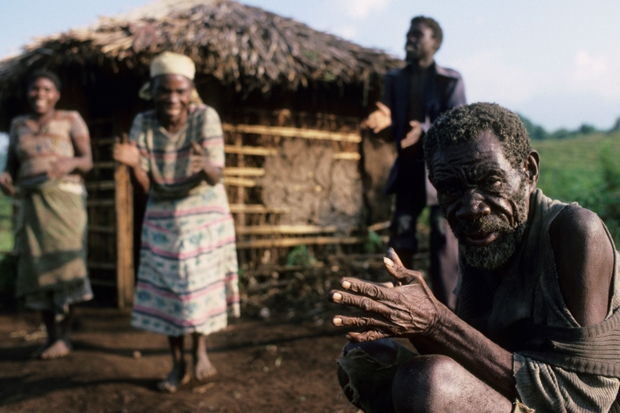Music of the Forest on Radio 4 last week was a profile of the anthropologist Colin Turnbull, 1924–1994, who achieved celebrity with his book The Forest People: A Study of the Pygmies of the Congo (1961), which presented such an inspiring vision of a prelapsarian, non-violent, egalitarian society that it became a cult classic of the counterculture. Turnbull appeared to have stumbled on an ideal and idyllic society, proving Hobbes wrong. The life of a pygmy, by this account, was very far from being ‘nasty, brutish and short’. (Or ‘nasty, British and short’ as academics are fond of saying.) What gave his pygmies the advantage over other primitive peoples, said Turnbull, is that they weren’t in thrall to the spirit world. They fear no evil. ‘For them it is a good world,’ he says.
I listened closely to the programme because I had recently read and enjoyed this book without knowing anything about the author. I had assumed Turnbull was simply a disinterested anthropologist. So I was fascinated to learn, for example, that he so despised the English upper-middle class values to which he was raised (he was educated at Westminster and Magdalen College, Oxford) that he lived the rest of his life in bitter opposition to them, and died a Buddhist monk, from Aids, aged 70. But even without knowing anything about this bee in Dr Turnbull’s bonnet, his book interested me for the simple reason that his beloved pygmies were located in the same region of the Ituri forest, close to the Epulu river, in Congo, that I had once visited while on an overland expedition across Africa.
There were 20 of us — Aussies, Kiwis and Brits — living out of a Bedford truck. Our night in a pygmy village was a ‘side trip’.









Comments
Join the debate for just £1 a month
Be part of the conversation with other Spectator readers by getting your first three months for £3.
UNLOCK ACCESS Just £1 a monthAlready a subscriber? Log in